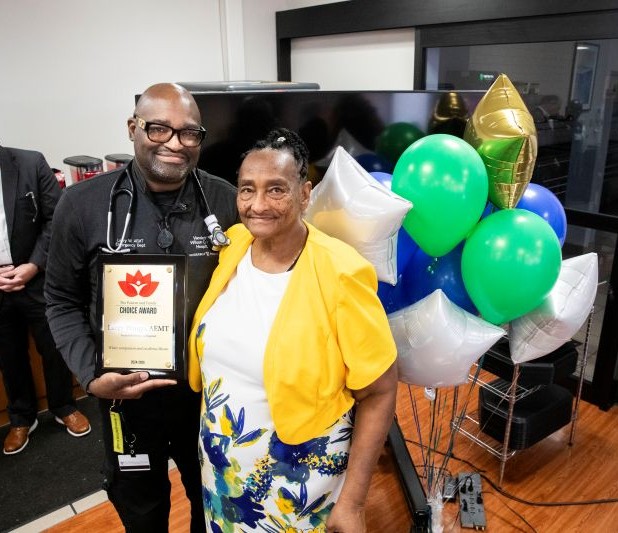Dear Colleagues,
This week, approximately 275 individuals lost their jobs at VUMC. There is no question that these actions, and those that will follow, are fundamental to improving our cost effectiveness and securing our future. But the truth is, the “necessary” nature of this doesn’t make it feel any better.
We are — at our core — a place that cares about people. That caring attitude is reflected in how we “are” with one another, and also with our patients and students. 
We find ourselves in a strange and unfamiliar place. The people who are leaving are not just our co-workers. They are our friends.
So how do we reconcile what feels like shifting sands under our feet? Are we appropriately weighing the needs of the individuals working here against the sustainability of the organization? We struggle to cope with what a clinician might diagnose as “cognitive dissonance.” Our mental model of VUMC as a “lifetime working home,” has been proven vulnerable to the volatile economics of health care and federally sponsored research.
What we cannot do — and should not try to do — is attempt to minimize the sense of loss we feel as we experience friends and colleagues leaving VUMC. Our reactions are important expressions of our humanity.
What we can do — and must do — is affirm our values. Economic forces are beyond our control. What is entirely under our control is the value system that we share. That value system remains centered on the importance of our people.
To assert this, we should provide ourselves — and to those outside the organization who might inquire — with clear facts that affirm our values are being maintained, even as we experience this unprecedented period of change. Consider the following:
1) We are a human capital organization. Our mission is to develop and nurture human beings through science, education and health care. To do this for others while not affirming that we also hold the needs of our co-workers as our highest priority would simply be wrong.
2) Even though it has created anxiety, we have and will continue to communicate openly and clearly about what is happening and why. Some have been concerned that VUMC has been “too transparent” about the need to reduce staffing. Those concerns remind me of the days when we didn’t tell patients what was actually wrong with them, to “spare them the pain.” That misguided approach elevated the patient’s anxiety, and worse, destroyed trust. Trust and fairness, anchored in clarity and truthfulness about the process we are undertaking, are not only important to the colleagues leaving the organization, but are critical to those who remain to carry forward.
3) We are doing everything possible to minimize the number of individuals who will lose their jobs as our workflow redesign efforts continue. Here our efforts have been strenuous and successful. The lengthy hiring freeze, causing many people to shoulder added responsibilities, has greatly reduced the number of occupied positions that will be eliminated. Through E2E, hundreds of these unfilled positions have been permanently engineered out of our workflow, and these strategic efforts will ultimately reduce the impact on people working here. In addition, the Medical Center’s Staff Voluntary Early Retirement Program has been successful with more than 250 individuals taking advantage of the opportunity.
4) This is an “all in” effort. For an organization like ours, preserving a sense of justice requires we all share the burden. Many of our clinicians, and certainly our executive leaders, will earn less income this year than last. As administrative support in the clinics is modified, we are asking clinicians to be as productive as ever with fewer resources. Finally, the restructuring of our School of Medicine administrative model into centralized “service pods” for all departments and centers changes the workflow patterns for myriad education and research activities. Across the board, we are relying on faculty for their flexibility and their leadership.
5) We will continue to emphasize non-labor expense reductions. By maintaining a sharp focus on contract optimization and supply and equipment standardization, we aim to capture approximately $70 million of the $250 million FY15 target in non-labor expense reduction.
6) Finally, and most importantly, we are committed to supporting individuals as they depart the organization. We are providing the following assistance:
• Paid leave during a 60-day notification period. During this 60-day period employees will continue to be employed and benefits will continue to accrue.
• Following this 60-day period, separation pay based on an individual’s years of service to Vanderbilt will be made available in accordance with a separation agreement. This is paid at the employee’s current base pay rate for up to 22 weeks.
• Priority consideration for open positions at Vanderbilt through Human Resources.
• A $2,500 stipend to help cover health care costs or other transition expenses.
• Career counseling services for all affected employees through outsourcing firm Lee Hecht Harrison and Vanderbilt Human Resources.
• 120 days of continued access to current Vanderbilt child care services.
During this era of abrupt upheaval in health care, I want to remind everyone we are not alone. Vanderbilt has not been singled out to face these challenges. Around the country, medical centers are moving to reduce operating cost, including many of our peers such as Duke, Emory, Cleveland Clinic, Johns Hopkins and Northwestern. Just last week Indiana University Health announced plans to reduce staffing by 800 positions and operational costs by $1 billion.
Instead of shrinking from this epic change, we are accepting the challenge. Vanderbilt, as a national leader, must guide the way. As we do, our core missions remain steadfast, and our fundamental character as an organization that first values people will never change.
Sincerely,
Jeff Balser, M.D., Ph.D.
Vice Chancellor for Health Affairs
Dean, Vanderbilt University School of Medicine

















